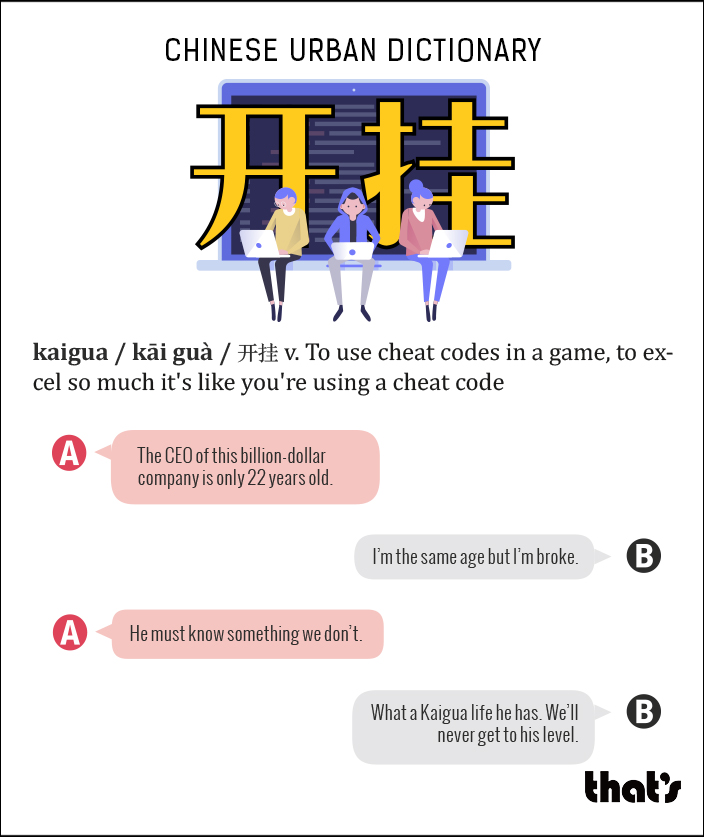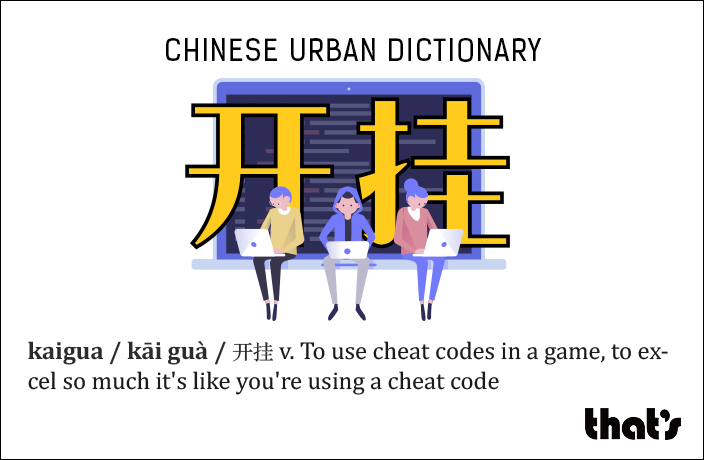kaigua / kāi guà / 开挂 v. To use cheat codes in a game, to excel so much it's like you're using a cheat code
A. The CEO of this billion-dollar company is only 22 years old.
B. I’m the same age but I’m broke.
A. He must know something we don’t.
B. What a Kaigua life he has. We’ll never get to his level.
What kids today understand – and what we should all get through our thick and aging skulls too – is that life is a game with the sole objective of leveling up in the material world. If Level 10 is like working a demanding rat-race job for a crabby boss, Level 100 is like having a trust fund while traveling the world “searching for yourself” and Level 1,000, is like having a fabulous wine cellar or a fleet of yachts (or both). Happiness simply can't be found on Level 10 when everyone else is at Level 100 and some are even on Level 1,000. But how do we get there?
Until very recently in China, life seemed fair. Everyone logged into the game at the same level and whoever worked the hardest and killed the most trolls leveled up the quickest. However, in the past couple of decades, it seems that some players have been born into Level 100 status and quickly leveled up to 1,000 without diligently killing trolls or spending much time in the game at all. Some players started on the same level as us, but after a while started to level up much faster, leaving us in the dust. To the rest of us still killing trolls one by one, they look like they have typed in some kind of cheat code.
Originally meaning to use cheat codes in video games, kaigua refers to what we think those overachievers seem to have done to advance so much in so little time, as if they knew some kind of secret to the game that we don’t.
We all know these people, who got into good schools, were given coveted jobs and became CEOs by the age of 26, all seemingly without much effort. Or those who went to the same high school as us, but later became international film stars and business moguls. Or those who used to share an office desk with us, but later launched a Nasdaq-listed company. They don’t seem to be following the same rules of leveling up as we are, but we don’t know their secrets.
Upon closer inspection, people who seem to kaigua have many reasons for overachieving – some due to family connections, others by deciding to abandon the rat race or focusing on one craft, starting the right business at the right time or pursuing a true passion.
You don’t have to kaigua at a young age. Plenty of accomplished people only started to kaigua later in life, like Colonel Sanders who founded KFC in his 60’s. In the game of life, it’s never too late to kaigua. Just remember to play it smart, not hard.

Read more Chinese Urban Dictionary




















0 User Comments